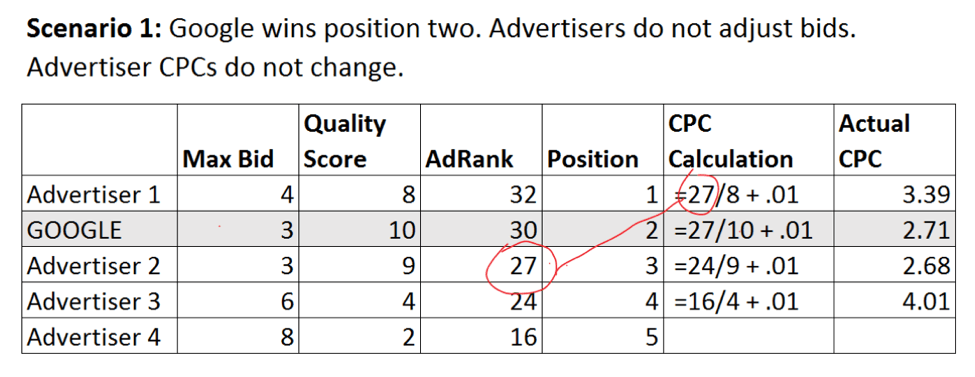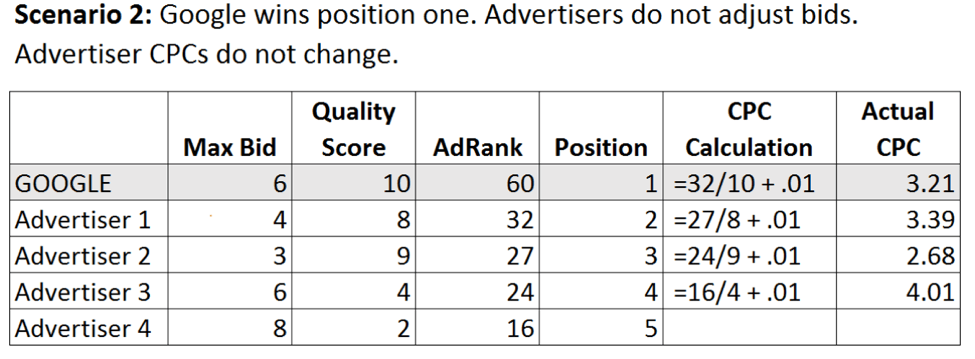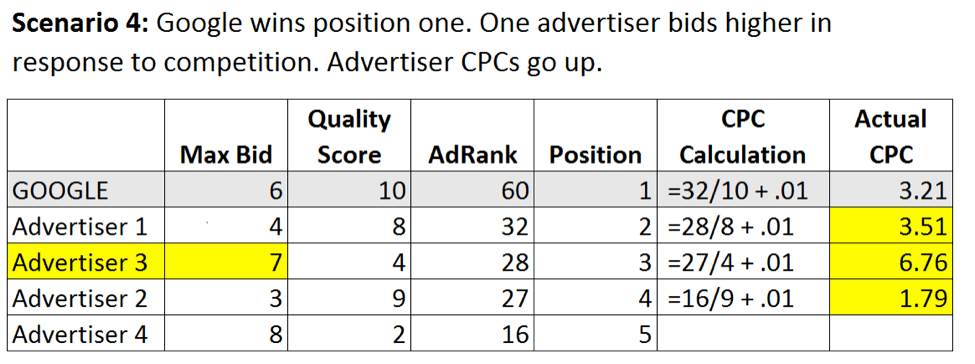Google’s Participation in its own Advertisement Auction
Google uses AdWords auction where participants bid on keywords so that their ads can appear on Google when certain keywords are searched. The bidding price is the product of the quality score of an ad and the maximum price that the advertiser is willing to pay, which is also called AdRank. Quality score is determined by the relatedness of an ad to the keyword and many other factors. AdWords operates as a second-price auction for multiple items where advertisers are ranked by their bidding price (AdRank) and then each pays an actual price that depends on the competitor below. The equation is: AdRank of advertiser below you/ your quality score + $0.01.
One thing to point out, however, is that Google itself participates in the process both as the bidder and the seller. When people raise doubts about the action, the response from Google according to The Wall Street Journal is “Google said that when it competes for ads, other advertisers are charged as if it wasn’t bidding, meaning its participation doesn’t directly inflate prices.” The way it works in Adwords is that Google enters the auction and gets ranked like others, but what advertisers actually pay at the end are determined by the ranking that excludes Google’s position. For example, if Google is ranked the second, the advertiser ranked top skips Google and pays the price calculated by numbers of the advertiser that ranked third, and the rest advertisers pay as normal. The result is the same as when Google wasn’t participating in the first place.
The statement remains true even when Google wins first position of the auction.
However, Google does influence the auction in more subtle ways. A Wall Street Journal report has found that Google and its associated companies held the top ad slot on Google search 91 percent of the time for broad non-brand queries (e.g. “laptops” and “phones”). Google entering the ads auction means a larger competition and advertisers, and they will likely raise their bids to fight for a better slot. The table below shows that when even just one advertiser raises his or her bid, all advertiser’s actual price to pay will go up. (Comparing to Scenario 2)
Advertisers raising their bids also means that Google as the seller can earn more money. The article also mentions the transparency issue about whether Google’s ads are calculated differently from others, especially due to its high top-slot winning rate.
Due to the inequality of information, sellers are rarely accepted to also participate in their own sealed-bid auctions. Google needs a more transparent system that clears its own suspicion but also allows individuals to clearly see how their scores and prices are calculated to play better in the auction.
In class we discussed that the dominant strategy for second-price auction is to bid one’s true value, but people may not always comply with the theory in reality. They may choose to make a trade-off between the risk of over-pricing and a better chance to win a slot, because they believe that they will be charged less than they claim to pay.



